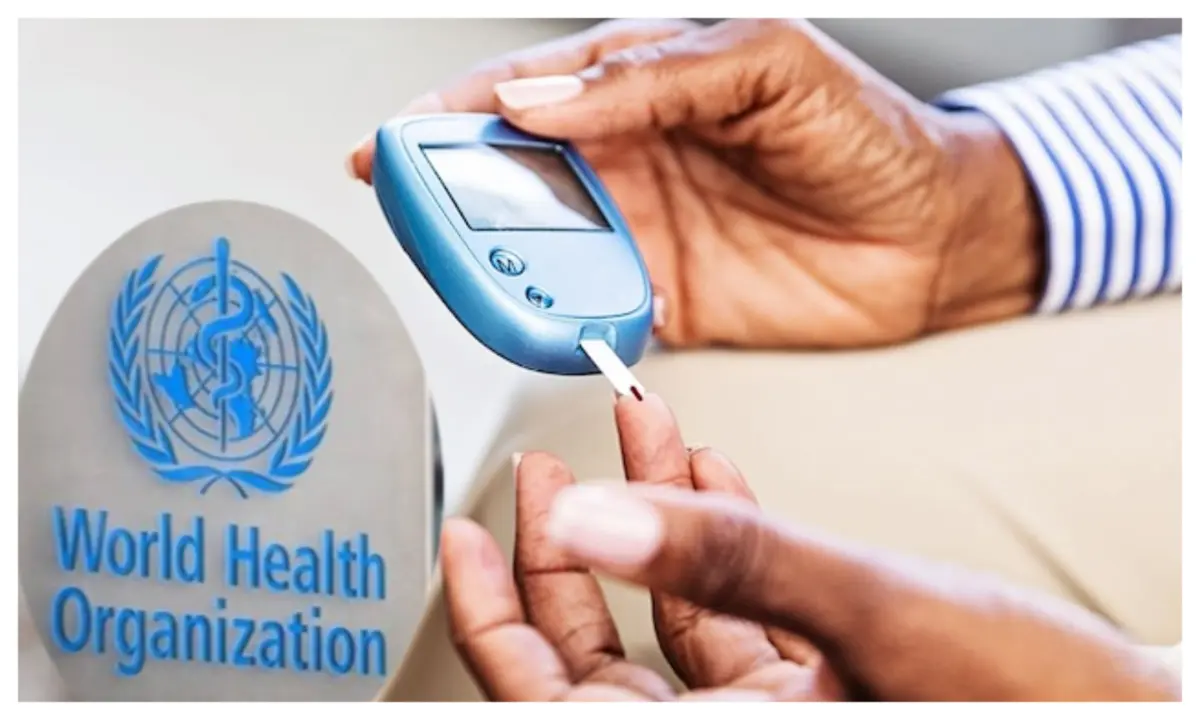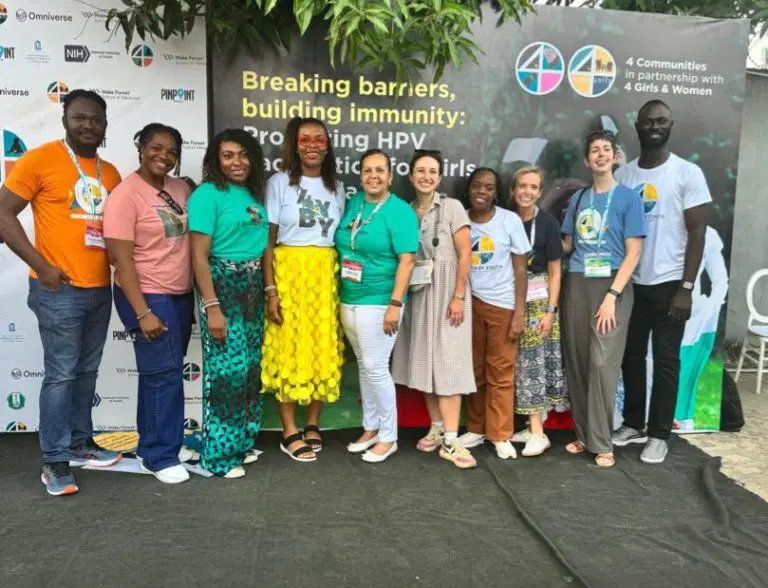Health
Diabetes: WHO’s Projection Raises Alarm Over Rising Cases in Nigeria

The World Health Organization (WHO) has raised an urgent alarm about the rising prevalence of diabetes in Africa, warning that it is becoming a “silent killer.” Dr. Matshidiso Moeti, WHO’s Regional Director for Africa, highlighted that if swift action is not taken, the number of people living with diabetes on the continent could reach 54 million by 2045, representing the highest global increase. This warning is particularly concerning for Nigeria, where the disease is steadily on the rise.
According to WHO, over 24 million adults in Africa currently live with diabetes, with half of them undiagnosed. The condition is exacerbated by factors like urbanization, unhealthy diets, and physical inactivity, and the WHO stresses the importance of a collaborative approach to tackling the disease. Africa’s healthcare systems, which have traditionally focused on infectious diseases, are ill-prepared to address the growing burden of chronic conditions like diabetes. The continent also suffers from the lowest investment in diabetes care, receiving just 1% of health expenditure.
In Nigeria, the diabetes prevalence rate is currently estimated at 3.46% of the adult population. Regional variations are apparent, with the South-South zone reporting the highest rate at 9.8%, while the North West has the lowest at 3%. The increasing trend in Nigeria is largely attributed to lifestyle changes, including poor diet, lack of exercise, and high consumption of alcohol and sugary foods.
Dr. Uche Okenyi, a Lagos-based health expert, stressed the need for Nigerians to understand the causes and risks of diabetes. He also urged a concerted effort from governments, individuals, and corporations to tackle the rising numbers. He highlighted that Type 1 diabetes, typically affecting adolescents, is caused by insulin deficiency, while Type 2 diabetes, which mostly affects adults over 40, is linked to lifestyle factors such as obesity and lack of physical activity.
The government, according to Dr. Okenyi, can play a critical role in raising awareness, promoting healthy lifestyle changes, and investing in the healthcare sector. Corporate organizations also have a role in educating employees and supporting health initiatives, while individuals should maintain healthy habits, limit alcohol and calorie intake, and seek early medical care for risk factors.
Dr. Innocent Emeka of Divine Hospital in Lagos emphasized the need for increased education, early diagnosis, and better access to diabetes treatments, particularly insulin. He pointed out that more than half of diabetes cases in Africa go undiagnosed, which makes effective intervention difficult.
The WHO has called on all sectors—individuals, governments, communities, and health professionals—to join forces in addressing diabetes, spreading awareness, and improving care. With proper management, lifestyle changes, and early diagnosis, the alarming projections for Nigeria and the broader African continent can be mitigated.
Health
We are committed to reducing maternal, child mortality — Mrs Tinubu tells Taraba monarchs

Nigeria’s First Lady, Senator Oluremi Tinubu, has reaffirmed the Federal Government’s commitment to reducing maternal and child mortality through improved health interventions and grassroots engagement.
Speaking during a meeting with traditional rulers in Jalingo, Taraba State, she emphasized the administration’s focus on strengthening healthcare—particularly among women and youth—by targeting preventable diseases and improving service delivery.
“We are here to encourage frontline health workers by providing incentives and recognizing their efforts,” Tinubu stated. “When well-supported, we believe maternal and infant mortality rates will decline significantly.”
She underscored the crucial role traditional institutions play in community mobilization, urging monarchs to help raise awareness of the Renewed Hope Initiative’s ongoing health programs.
The First Lady also drew attention to the need for action on HIV/AIDS, especially mother-to-child transmission, which she described as persistently high. “Treatment for HIV/AIDS and tuberculosis is available and free. We need to get this message to the people, and traditional leaders are key to that,” she added.
Coordinating Minister of Health, Prof. Ali Pate, echoed her sentiments, highlighting the government’s frontline healthcare efforts.
“In the North East alone, 8,500 frontline health workers have been trained—1,300 from Taraba. Over 1,000 health facilities receive quarterly funding from the Basic Healthcare Provision Fund, including 170 in Taraba,” he said.
Taraba State Governor, Dr. Agbu Kefas, and First Lady Agyin Kefas, commended the federal interventions and noted they align with the state’s developmental priorities.
As part of her visit, Mrs. Tinubu donated 10,000 professional kits to midwives across the six North East states and presented a ₦50 million cheque to empower 1,000 women in Taraba.
Health
Chewing Gum Releases Microplastics Into Mouth – Researchers
Researchers have discovered that chewing gum releases hundreds of tiny plastic fragments directly into the mouth, raising concerns about microplastic exposure.
A study by the University of California, Los Angeles (UCLA) found that a single gram of gum can release an average of 100 microplastic particles, with some brands shedding over 600.
Lead researcher Sanjay Mohanty emphasized that while no direct evidence links microplastics to health risks, the study highlights another way these tiny pollutants enter the body.
People who chew around 180 pieces of gum annually could ingest approximately 30,000 microplastic fragments. However, Mohanty noted that bottled water and other sources contribute significantly more to microplastic intake.
Health
International Women’s Day: Cervical cancer survivors share stories of resilience

As the world marks International Women’s Day, 4 Communities by Communities (4CbyC) is highlighting the resilience of women battling cervical cancer. Through personal narratives, the organization aims to raise awareness about the disease, stressing the importance of early detection, vaccination, and community-driven healthcare solutions.
For Ene, the impact of cervical cancer became deeply personal following the loss of her aunt, Evelyn, and the declining health of her mother. Living in Awo-Kajola, their family’s once-vibrant evenings were shattered by grief. Fearing a tragic pattern, Ene sought answers at the One-Stop Shop for Health, where she met a clinician, Funke.
Funke’s explanation changed everything: cervical cancer was not a curse but a preventable disease. Testing confirmed Ene’s worst fears—her mother had Stage 3 cervical cancer. However, hope remained. Funke assured Ene that she and her sister, Blessing, could receive the HPV vaccine, preventing future cases.
Similarly, Jennifer’s story underscores the urgency of awareness and healthcare access. Misdiagnosed for years, her cervical cancer advanced unchecked, and by the time she received proper care, it was too late. Financial constraints and limited healthcare resources delayed her treatment, leading to her passing in 2020.
To prevent more cases like Jennifer’s, organizations like the SaliHoe Foundation are stepping in, offering free cervical cancer screenings, vaccinations, and education. Campaigns such as “Know Her, Save Her” are using digital platforms to spread life-saving information, while FemmeHealth connects women with screening and treatment options.
Directors of 4CbyC—Prof. Juliet Iwelunmor, Prof. Joe Tuckler, and Prof. Oliver Ezechi—emphasize the need for continued advocacy, early detection, and accessible healthcare.
“The fight against cervical cancer is not just about health; it’s about breaking down the barriers of stigma, access, and education,” they said. “Through collective action, we can create a world where no woman dies from a preventable cancer.”








